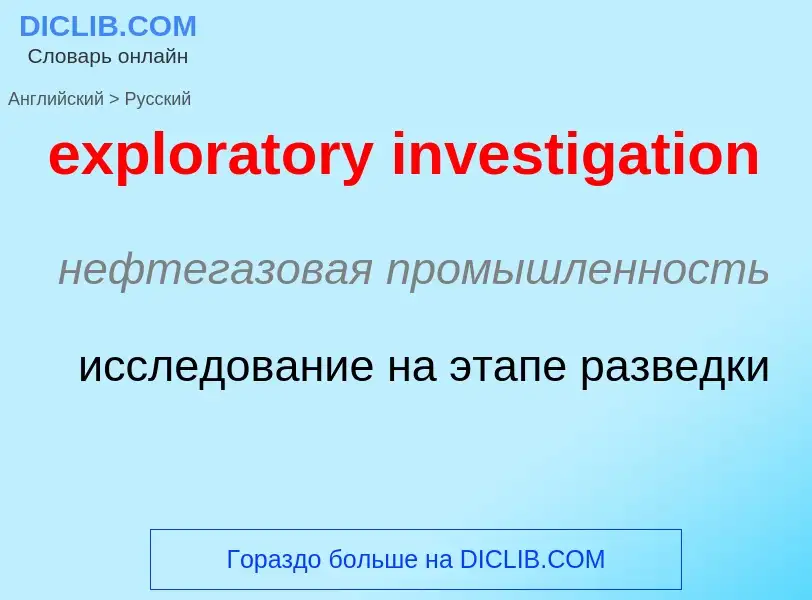Μετάφραση και ανάλυση λέξεων από την τεχνητή νοημοσύνη ChatGPT
Σε αυτήν τη σελίδα μπορείτε να λάβετε μια λεπτομερή ανάλυση μιας λέξης ή μιας φράσης, η οποία δημιουργήθηκε χρησιμοποιώντας το ChatGPT, την καλύτερη τεχνολογία τεχνητής νοημοσύνης μέχρι σήμερα:
- πώς χρησιμοποιείται η λέξη
- συχνότητα χρήσης
- χρησιμοποιείται πιο συχνά στον προφορικό ή γραπτό λόγο
- επιλογές μετάφρασης λέξεων
- παραδείγματα χρήσης (πολλές φράσεις με μετάφραση)
- ετυμολογία
exploratory investigation - translation to ρωσικά
нефтегазовая промышленность
исследование на этапе разведки
['mə:də,skwɔd]
общая лексика
"Отряд розыска убийц", "Опергруппа убийств" (неофициальное название отделения Департамента уголовного розыска [Criminal Investigation Department], занимающегося расследованием особо опасных преступлений, связанных с убийством)
[ik'splɔ:rət(ə)ri]
общая лексика
исследовательский
зондирующий
медицина
пробный
нефтегазовая промышленность
разведочный (о скважине)
прилагательное
общая лексика
исследовательский
разведочный
пробный
испытательный
исследующий
Ορισμός
Βικιπαίδεια
In statistics, exploratory data analysis (EDA) is an approach of analyzing data sets to summarize their main characteristics, often using statistical graphics and other data visualization methods. A statistical model can be used or not, but primarily EDA is for seeing what the data can tell us beyond the formal modeling and thereby contrasts traditional hypothesis testing. Exploratory data analysis has been promoted by John Tukey since 1970 to encourage statisticians to explore the data, and possibly formulate hypotheses that could lead to new data collection and experiments. EDA is different from initial data analysis (IDA), which focuses more narrowly on checking assumptions required for model fitting and hypothesis testing, and handling missing values and making transformations of variables as needed. EDA encompasses IDA.




![variation that increases with tip amount]]. In particular, there are more points far away from the line in the lower right than in the upper left, indicating that more customers are very cheap than very generous. variation that increases with tip amount]]. In particular, there are more points far away from the line in the lower right than in the upper left, indicating that more customers are very cheap than very generous.](https://commons.wikimedia.org/wiki/Special:FilePath/Tips-scat1.png?width=200)

